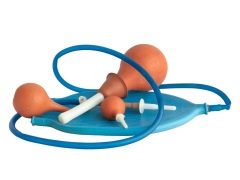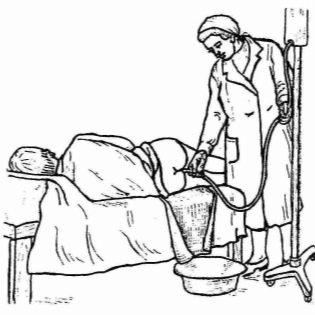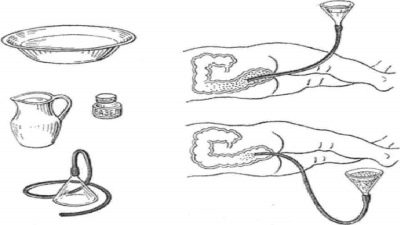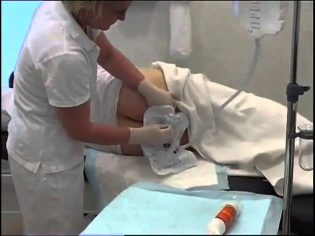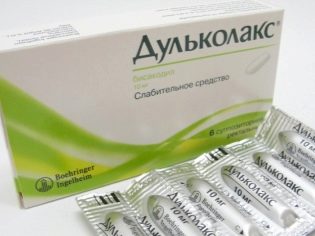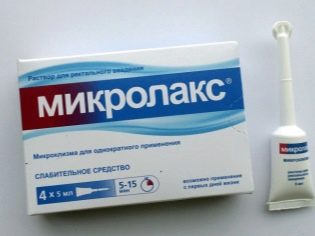Do enema before caesarean section and when it is needed after it?
Enema - an unpleasant procedure, but before a cesarean section, and sometimes even after it is absolutely necessary. Women in labor who entered the hospital for natural childbirth, this procedure is done in the emergency department. Before operative labor, it is performed a few hours before the start of the operation.
Many women believe that an enema in childbirth is necessary so that during attempts, the woman does not empty the intestines at the same time. But then the question arises, why wash the intestines before the operation, because the woman does not push? About how and why the enema is done before operative delivery, we will discuss in this article.
Why do you need it?
The empty intestine exerts no pressure on the uterus. And this is the main reason for putting an enema before the operation. The uterus should be free, this will allow the surgeon to perform the operation more efficiently, minimizes the risks of possible infection, which are with each surgical intervention. Devastated intestines will help the woman in the period after the operation, when the uterine contraction begins, her involution.
Women who have undergone a similar or other abdominal surgery are well aware of how painful and frightening it is to go to the toilet, laugh, and cough after it. A pre-cleaned intestine is a guarantee that a woman does not want to go to the toilet for the first three days after delivery, and she does not have to suffer herself and put fresh internal and external stitches at risk for tearing.
After the operation, the woman is prescribed a strictest diet, which is also aimed at preventing intestinal filling and pressure of intestinal loops when constipating the uterus. This is the key to a proper and successful recovery.
The fear of attempts after an operation can be so strong that a woman psychologically cannot overcome it even 4-6 days after the operation.
In this case, the enema will help empty the intestines and cleanse the body. True, in the postoperative period, doctors recommend using pharmacy microclysters or rectal suppositories with a laxative effect.
How is it done?
It is accepted to put an enema on the day of a planned surgery early in the morning The woman will be raised earlier, before the general rise, especially in order to clean the intestines.
The pregnant woman is laid on her side on a couch, the tip is smeared with petroleum jelly or baby cream and injected into the anus. After that, the nurse holds the Esmarch cup and controls the intestinal filling with warm water. Water must be applied warm (at least 20 degrees). Cold can cause involuntary spasm of blood vessels, which can adversely affect the condition of the future mother and her baby.
In the Esmarch circle, connected to the tip of a flexible connecting tube about one and a half meters long, between one and a half and two liters of water should be poured.
Ideally, everything should be poured into the intestine, but in practice, usually a smaller amount is injected, because when filling the intestine with water, there is a feeling of distention that it is not only difficult for a pregnant woman to endure, but also quite painful.
After the bowels are filled with water, the nurse helps the pregnant woman to go to the toilet, where she can empty the intestines. After the enema, be sure to wash well with soap and shave pubis.After the enema can not eat, because the woman will be the introduction of anesthesia.
Enema before surgical childbirth put once.
After surgery - is it necessary?
In the full sense of the word, a cleansing enema with an Esmarch cup and an unpleasant rectal tip is usually not placed after the operation. It is considered optimal if a woman’s stool is restored naturally in 3-4 days after a cesarean section. But in practice, self-recovery is very rare.
But to prevent intestinal overflow and constipation is impossible. And because the doctor recommends a laxative. If a woman is allergic to components of the laxative or she does not want to take risks and take pills or capsules due to breastfeeding, then rectal suppositories are suitable, for example, Bisacodyl or other drugs that do not have a systemic effect, and therefore will be completely safe for babies. .
It is important to know that the systematic use of such agents causes weakness of the intestinal tone, in which it becomes almost impossible to go to the toilet without a laxative. Therefore, women are recommended to use microclysters and candles only a limited number of times, and gradually begin to go to the toilet on their own.
About why in the hospital put an enema, you can learn from the following video.
